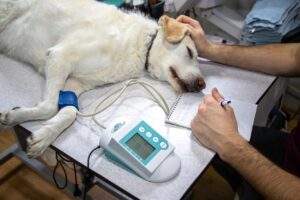Heart Attack – How Blood Pressure Could be a Reason?
Whenever you visit a doctor, the doctor always checks your blood pressure. Blood pressure in your body should neither be too high nor be too low, as both of them are home to a number of health issues. High blood pressure is often considered to be related to a number of heart diseases, in some cases, high blood pressure paves the way to a heart attack as well.
The excess strain and resulting damage because of hypertension and high blood pressure cause the coronary arteries which serve the heart to gradually turn narrow because of the build-up of fat, cholesterol as well as various other substances called plaque. This slow process is known as atherosclerosis.
As the plaque hardens these arteries, this creates various blood clots. When an artery gets blocked because of the accumulation of blood clot or plaque, the flow of blood through the muscles of the heart is disturbed which also starves the muscles of nutrients and oxygen. This particular damage or death of a part of the muscle of the heart is known to be causing a heart attack or myocardial infarction. In such a situation, heart attack treatment should be immediate or a person can even lose his life.
Blood pressure is not always considered to be an accurate predictor of a heart attack. In some cases, a heart attack could cause an increase or decrease in the pressure of the blood flowing in the body. However, having a change in blood pressure reading doesn’t always refer that this symptom is heart-related. A heart attack doesn’t have any single symptom in particular; on the contrary there are multiple other symptoms to a heart attack. In some cases, a heart attack may be caused without any symptom at all.
According to various heart hospitals, pain or pressure in the chest is considered to be the most common symptom of a heart attack. At the same time, certain discomfort or pain in the back, arms, jaw or neck also could be a sign. In all the other cases, symptoms such as shortness in breath, light-headedness as well as nausea should also not be taken lightly. If you experience any of these warning signs, it is advised to immediately seek medical help, even when you are not sure that these signs could directly contribute to a heart attack.
Of all the different symptoms of a heart attack, chest pain is considered to be the most common one. Other possible symptoms of a heart attack include mild to severe squeezing sensations in the chest area, cold sweats, pain in the arms, nausea, vomiting, dizziness, shortness in breath, pain in the jaw, neck and upper back, etc.
Various doctors at the heart hospitals suggest you take regular check-ups with the doctor in order to determine the various risk factors that are associated with a heart attack. It is further recommended to always maintain a healthy lifestyle in order to keep all kinds of heart problems at bay. Your heart is precious and you must take care of it by all means.






